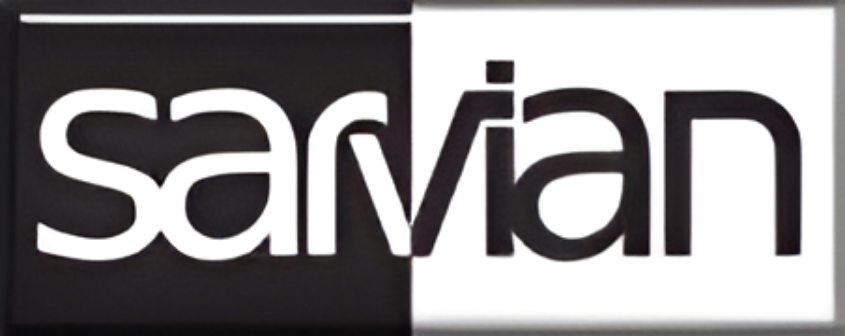Towards the beginning of the year, after a 6 year run, I left my role as CFO of Vuclip, Inc., an on demand video streaming company, founded in Silicon Valley and focused exclusively in emerging markets, markets such as India, Indonesia, Malaysia, parts of the Middle East, and parts of Africa. This experience turned out to be much more than a job for me; it provided real purpose and a global community; a home. A purpose that was driven by inspiring, developing and appreciating colleagues around the world, an employee feeling that this was my company just as it is your company; and a culture that values authenticity, empathy and humor.
While I was based in Silicon Valley, the majority of the company’s operations were in India, our acquiring parent company was based in Hong Kong, and our fastest growing markets were in Indonesia and Dubai. For me, I’d travel internationally every 2-3 months and would have late night and early morning calls nearly every day. While the job was deeply satisfying, given the demanding lifestyle and pace for 6 years and multiple years in similar environments, I decided to take a short break before pursuing the next journey.
This post outlines my unplanned approach to reenergize and reprioritize and lessons learned during the last several months. Admittedly, this applies to me and my circumstances. Others with different financial and family situations may not have the luxury to take such a break in this manner. The Covid-19 pandemic has created havoc and tragedy around the world; I’m grateful, fortunate, and appreciative that I’ve been lucky enough to have this time during such a period. What follows is what evolved into my nine point plan.
- Celebrate Achievements
As a company and as an individual, we had many achievements during my tenure at Vuclip. My first step was to have some sort of celebration. My celebration was to bring my parents over to California, get them away from the Midwest winters, and spend several quality weeks with them during my initial down time which I rarely could do in the previous years. Just in time, before the pandemic closed that option, which unfortunately, ultimately canceled other celebrations.
- Build Physical, Mental, and Financial Health Objectives
Having neglected some best practices for health over the years; my immediate focus was a health audit; physical, mental and financial. I wanted to identify and admit physical health gaps and create more mindfulness to achieve greater peace of mind, with a corresponding improvement plan for both. Financially, given the job transition; know my thresholds and timelines for the break and investment priorities and needs given the reduced income.
- Listen, Read, Reflect, Write
During the busyness of life, reading for the sake of curiosity and learning is something for me that I wished I could do more of. With the arrival of additional time, creating a thirst for learning was a priority. Learning about new topics like AI but also diving deep into esteemed sources of management, leadership, and business like Grove, Horowitz, Voss, and Taneja to fine tune my own management and leadership styles became important. Not all topics needed to be about self improvement; reading books about the Golden State Warriors championships or watching the newest season of Narcos and Suits were equally gratifying. With the availability of an overwhelming number of podcasts, I found listening as the source of my learning was even more efficient than reading. Finally, writing notes and summaries of key points from podcasts and books strengthens my learning.
- Identify Habits to Change or Create
During the last decades, there were some habits I know I needed to change. Now was my time to attack those. First up was reduce my digital dependency. Constantly, attached to my phone, having developed the lure of the serendipity of Twitter and the comfort of the arrival of another email or What’s App, I needed to work to reduce the digital lure of the phone, and not make it seem to be a third limb. Relatedly, I needed to move from the manager lifestyle where my job was to manage distraction and be able to multi-task amongst the myriad of competing tasks and requests, and re-train myself on how to do focused single tasks—to sit and read one book or write summaries for an hour. Next, having for years been taking calls in the evening; start to build regular dinner routines with family and not be planning or participating in the next call that evening during dinner time. Finally, re-build better sleep habits and gain the energies that come from more restful sleep.
- Be Adaptable
The first four steps for me were needed objectives. But I learned I can’t be rigid towards progress towards them. A once in a century pandemic hit, followed by a necessary conversation about racial injustice in the US, which created new challenges and uncertainties for me as it has for the world. While I had a reduce my digital dependency objective, I found myself constantly searching and filtering Twitter for thoughtful insights, analysis and global first hand accounts about the virus and science behind it, the economic impact and the government responses to both the racial injustices and the public health crisis. I certainly wasn’t reducing my digital time, perhaps even increasing it. Looking to achieve better mindfulness, to be more present, now was often challenged by living through the Pandemic and the worries that came with it. Physical objectives weren’t going to be fully met without the opportunity to exercise at the gym as I had planned. Ultimately, for me, the objectives were still there; whether I made progress on them now or over time became less important.
- Participate in activities that flex new muscles
Given the cancellation of personal travel trips, the extra time allowed me to emphasize activities that let me flex some new muscles—I digitally taught a finance course a university program, mentored and advised startups focusing on strategy and growth, pursued a project on AI and water management for a not for profit organization, and networked with a variety of individuals outside my normal professional sphere. Additionally, given the stay at home lifestyle, I picked up cooking and photography of birds as new hobbies. While a finance professional and CFO, these activities allowed me to flex Sales, Teaching, and Not for Profit skills and mindsets in new environments
- Don’t Narrowly Define yourself
Through my professional career, I’ve progressed to become CFO of multi-national, complex technology companies . I’ve been inclined to define myself based on certain attributes tied to that leader profile; discipline, organized, attention to detail, process oriented, reliable. But as I assess my skills, strengths and what brings joy to me; I also need to realize there are many more attributes that have made me successful in my role and career; I’m a storyteller, a coach, a connector, a dealmaker, a risk taker. The lesson being; don’t define yourself in narrow, pre-conceived terms.
- Document your North Star
The culmination of my health audit and creating related objectives, the reading and reflecting and absorbing of new ideas, the participating in new activities and flexing new skills, and the willingness to define myself beyond expected notions led me to document my North Star. My North Star documents, professionally and personally, what I find as critical to satisfaction and purpose and thus the types of activities that I want to pursue, the people I want to tie myself to, the skills I want to leverage and grow, and the organizations and causes I want to help and devote my time to in the future.
- Start the next journey; build compounding relationships; and flex new muscles
Having documented my North Star, it’s time to pursue my next journey, which may be multiple journeys or a single journey, it may leverage my dominant skills and the ones that I’ve always had but under emphasized or new ones that I’m starting to build. It will be with people I can build compounding relationships with; relationships that don’t begin and end in the short term but those that strengthen and compound.
Now, the trick will be how to continue this path of discovery even during the next journey. This can’t be just during a break; a break won’t last but these principles need to endure. Doing health audits has to be ongoing, reading and listening to learn needs to continue to happen; creating better habits and flexing new skills can’t just happen during breaks. Of course, being adaptable remains important; I know I’m still far from reducing digital dependency and achieving my physical health objectives but maintaining this journey is the next purpose.

